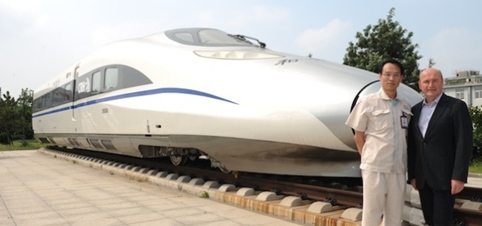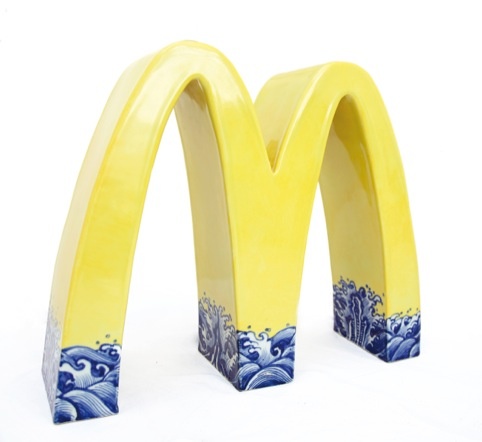Working with the Emperor – how to make a success in China
Priestmangoode co-founder Paul Priestman on the challenges and opportunities of working in China.

Last week I was invited to join Prime Minister David Cameron on his largest trade delegation to China. The aim of the trip was to foster partnerships between British and Chinese companies.
A total of 100 of the UK’s top companies from different sectors were selected. While Priestmangoode was the only design company, there were a handful of representatives from the creative industries, including Zaha Hadid Architects, the V&A, The British Council and the British Film Institute.
While this may not seem like a huge presence, it’s more than we had on the last Prime Ministerial trade delegation in 2010. At the time, I was the only representative of the creative industries.
I wonder whether the London Olympics have contributed to the inclusion of more creative companies this year. As Design Week reported last week, the government has introduced various measures to support the creative industries, and their recognition of our sector and inclusion in the trade delegation should not be underestimated.
The trip made me reflect on some cultural differences between the UK and China, notably the perception of government in business.
In the UK, many businesses stay well away from government. By contrast, government is absolutely key to business in China. Many companies are still state-owned and it’s simply impossible to do business without government support.

Source: Chinese Design Today
Li Lihong, China – McDonalds, 2009. Part of the recent Chinese Design Today exhibition
The head of our China office, Roland Boal, reflected recently that there is still a lot of pomp and circumstance surrounding Chinese business events. Being seen with high-ranking government officials impresses and is valuable for business.
Therefore, an endorsement by the UK Government of Priestmangoode is worth a great deal. And it isn’t support just for me as a company, but for our industry at large. Inclusion in the delegation demonstrates that the British Government acknowledges the importance of the creative industries to the economy. And for my clients in China, taking part in a trade delegation, shaking hands with the Prime Minister and meeting the new premier of China gives a very good impression and gives them reassurance.
At one of the many dinners, a minister commented on the fact that it’s incredibly hard to penetrate the Chinese market and to operate there successfully.
Priestmangoode has been working in China for just over five years now, but I started going there more than ten years ago. I remember one of the first stories I was told as a foreign businessman was about the craftsman who wanted to work with the Emperor, but who had to visit the palace at least three times before he was allowed to meet the Emperor himself. This holds true for any Chinese company today. Doing business in China is a process of relationship building and it takes time, effort and dedication.
But the potential rewards are great. China has an enormous middle class (it is claimed that the Chinese middle class is bigger than the middle classes of all of Europe put together). And as the country is rapidly changing, consumers are becoming more discerning and always looking for something exclusive. This is where the British creative industries can come in. We have the expertise and the heritage to offer Chinese consumers great design.
But, we must put the effort in. I travel to China regularly and I rarely hear English voices in hotels or at trade events. I hear German, American, French and Italian, but not English. China presents vast opportunities, but they will not come on their own. We must seek them out. The potential rewards – not just for single companies, but for the UK’s reputation as the world’s leading design nation – are massive.
Paul Priestman is co-founder of Priestmangoode.
-
Post a comment




